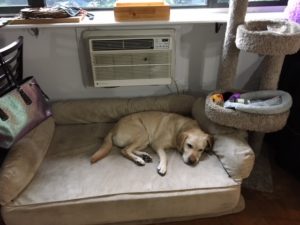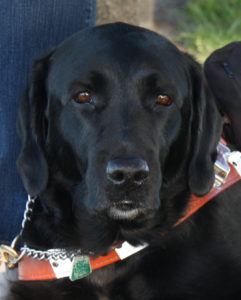Today was the monthly meeting for the Westchester Council of the Blind of New York. We hold it at a house of worship, and we are very fortunate to be getting our space for free. While we were setting up and listening for members to come down the steps to our meeting room, a man appeared,
“Are you having a meeting for blind people?” he asked, sounding a little annoyed.
Yes, we said, this is where our meeting is.
“Oh,” he replied, “There are some people coming here, and they don’t seem like they know where to go, maybe you should put up a sign,”
Yup, folks, after he left, my colleague and I broke up laughing, then shook our heads, feeling quite sorry for the ignorant sighted person. We went to find our wayward members and led them to the room.
We could have felt angry, or upset, but this is nothing unusual for us. We did not allow this man and his inadequacies or annoyances to negatively affect us.
Furthermore, I don’t know how I can state this eloquently , but, well, a sign really won’t help the blind folks, only folks like this man, who came in, did not greet us or even introduce himself; by the way he sounded, he felt somehow threatened by the “blind people”, or he would have brought them with him instead of coming to the room to complain.
If you are still reading, this is more or less an average example of what we encounter from day to day. Sometimes we fair better, some days, the ignorance and uncaring attitudes seem to be everywhere. It’s no wonder 70% of employable blind people are not working; that people who lose vision and are over 50 struggle to remain independent; why guide dog users who are blind are denied ride share services 1 of 3 times despite policies adhering to the Americans with Disabilities Act laws.
We are a powerful group and yet we are a minority still grabbing and pulling ourselves up the wall of equal access and opportunity. We must help one another so we can be the change-makers, in our communities, Nationally, and worldwide.
Most importantly, don’t be like this man who did not say his name and was so off-putting with an attitude of annoyance; after reading this example, if you encounter someone who is blind, lost or looking for directions, work with them, ask how best to help, and go with it.



